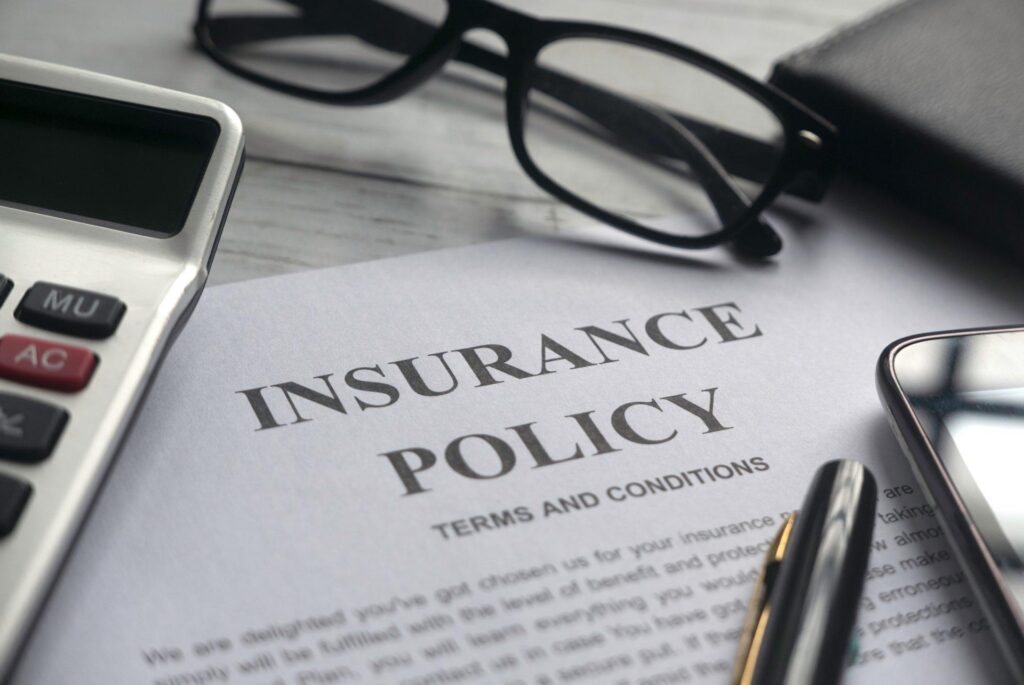As an entrepreneur, choosing the appropriate business insurance policy is one of the most significant decisions you will face. Business insurance is an imperative aspect of any business approach since it secures a company against conceivable threats that may otherwise obliterate its assets. Nevertheless, numerous types available often create a daunting experience to many when purchasing business insurance. We will also answer your queries so that you do not get confused and make the right decisions when it comes to business insurance for your industry, the types of insurance and how they can benefit your business.
The Importance of Business Insurance
At business, the risks range from simple to complex and it is prudent you take out an insurance cover for your enterprise to safeguard against losses. Business insurance covers a wide range of enterprises including the smallest start-ups insuring against accidents, lawsuits as well as disasters, property damage, or other unexpected events irrespective of the size of the business. Moreover, it enables one just to relax rather than be distressed trying to juggle obligations as well as the expansion of the business since financial security is always guaranteed.
As an illustration, industries that have a higher likelihood of accidents, for example construction or manufacturing, business insurance includes damages from employee injury, damage to equipment, or even defending against lawsuits. This means that without sufficient coverage, for example, your company is vulnerable to considerable financial risks which may threaten its existence.
Important Points to Bear in Mind Whenever Selecting Business Insurance Cover
However, before choosing a policy to cover your business, it is necessary to evaluate a number of aspects that will determine your coverage requirements. Here are some essential points to note:
Type of Business: Businesses in various industries assume various risks and have different needs. A cyber liability insurance cover would be important for a technology startup, while a property cover for kitchen apparatus and a liability cover to protect against customers’ injuries were required for a restaurant.
Business Size and Revenue: The business size and the revenue earned will also determine how much cover is taken and the nature of cover that will be necessary. Comprehensive policies may be needed for bigger businesses with multiple employees, assets, and multiple operations while basic policies may be sufficient for smaller businesses.
Location: There is a difference in local laws and regulations and some areas might have the need for certain types of industries to have particular covers. Moreover, based on your geographical location, certain areas might pose particular challenges, such as natural calamities, and therefore would need specific coverage.
Employers: In the event that you have workers, several jurisdictions may require you to have workers’ compensation insurance which is meant to cover medical and lost income costs for employees who get injured while at work.
Types Of Business Insurance Cover Policies You Should Have
Business owners are spoilt for choice on the available policies, and knowing how each one works will make it easier for you to choose the most appropriate policy for your situation. Here are the most common ones:
1. General Liability: General liability insurance is one of the most, if not the most, important ones an entity or individual seeking business insurance can acquire. It covers the legal expenses as well as any settlements that may arise as a result of lawsuits or claims in relation to physical injuries, damage to property, or use of advertisements. For example, if a client slips and falls on a wet floor in your shop or if there are any misleading or defamatory ads designed for your products and services, this insurance will take care of that.
2. Professional Liability Insurance: Professional liability insurance, or more infamously referred to as errors and omissions insurance (E&O), is crucial for those in the professional servicing industries or providing professional advice. Its insurance protects for claims that deal with negligence, fault or not performing required services within the established time. For instance, this insurance is often required for people in occupations such as consultants, financial advisors, and health care practitioners.
3. Property Insurance: Property Insurance compensates the owner for the loss of business properties such as buildings, machinery and stock. Property insurance is particularly important for businesses that have a physical presence such as a shop or factory and is usually sold as part of commercial insurance alongside other types of coverage.
4. Workers’ Compensation Insurance: Business owners who have employees are, in most instances, obliged by law to obtain and keep in force workers’ compensation insurance. This insurance plan pays medical expenses, rehabilitation expenses and pays for loss of wages when an employee gets injured in the course of duty. At times, worker’s compensation also pays out death benefits when a worker is killed in a work-related accident.
5. Business Interruption Insurance: Business Interruption Insurance protects the business in case a business has ceased operation for a predefined time because of factors outside the control of the business, for instance, natural calamities, a fire outbreak, a pandemic, etc. Great cover will enable you to tide over the Dutch recovery period when your income will be interrupted but you will be required to meet obligations like rent, utility bills and salaries of employees.
6. Auto Insurance for Commercial Use: This kind of insurance is necessary if your company uses vehicles for work. It pays for the medical expenses and accident costs incurred when using vehicles that are owned or leased by the insured business. It also includes reimbursement for the costs of damages and injuries sustained when the company’s vehicles are involved in accidents.
7. Cyber Security Insurance: Today, businesses are at risk of cyber threats like data breach, hacking and even ransomware. Cyber liability insurance protects businesses from data breach related expenses such as notification costs, legal expenses and recovery actions.
8. Product Liability Insurance: If your firm manufactures or sells products, then product liability insurance provides coverage for injuries and damages caused by products manufactured or sold by your firm. Such coverage would allow paying for legal costs and payment of compensation for a client injured by a defective product.
Types of Business Insurance by Industry:
| Industry | Insurance Types |
|---|---|
| Restaurants | General Liability, Liquor Liability, Property, Business Interruption |
| Retail Businesses | General Liability, Product Liability, Property, Business Interruption |
| Tech Companies | Cyber Liability, Errors and Omissions, Property |
| Construction | General Liability, Workers’ Compensation, Property |
Choosing the Right Insurance Depending on the Industry
It is worth noting that different types of business insurances are tailored to a particular industry. Here’s how to work out which types of insurance you need according to your sector:
For Restaurants and Food Service Businesses: Restaurants come with their own set of perils such as customer-related injuries, food poisonings, and damage to cooking appliances. Typical covers of insurance that most restaurants have include:
General Liability Insurance: This covers injuries of clients and property destruction.
Liquor Liability Coverage: If your restaurant retails liquor, this is your cover when customers who are inebriated cause injuries or accidents.
Property Insurance: Provides covers against damage to and loss of kitchen appliances, furniture, and stock.
Business Interruption Insurance: Provides compensation for income loss owing to factors outside the businesses’ control such as fire or other catastrophes.
For Technology and IT Companies
Tech startups and IT companies have a propensity to the following range of risks: data theft, intellectual property infringement and equipment failure amongst others Coverage’s available include:
Cyber Liability Insurance: This covers losses from data theft, breaches, and Cyber Terrorism.
Errors and Omissions Insurance: This also caters for claims that are tied to software not working or services not being rendered.
Property Insurance: This insurance policy covers owned construction technologies such as computing devices, servers, and other assets.
In Retail Business
Everything that incorporates retail such as, offline stores, online stores and any other businesses needs to be cautious regarding customers getting injured, an asset stealing and any other situations which might result into ruined stock. The ideal coverage for retailers includes:
General Liability Insurance: This insurance is aimed at covering customers who are hurt and their belongings which are damaged.
Product Liability Insurance: This insurance seeks to cover claims regarding harmful or defective products.
Property Insurance: This insurance covers physical structures including stock and apparatus.
Business Interruption Insurance: This insurance covers financial loss which is as a result of disaster.
Cheap Business Insurance: Getting The Right Balance
Price, cost or even how cheap an item is will always be among the topmost factors that business managers or owners consider, and this is the case especially with small businesses which are at the nascent stage. Nonetheless, acquiring business insurance that is low-cost is crucial because it protects your business and does not go overboard with the budget. There are several hints to consider which can help get the least priced policies:
Comparison: Assess how different service providers can handle your requirements and help you customize your policies.
Package Policies: Discounts on several policies are usually given e. g by combining general liability plus property insurance into one.
Higher Deductibles: By raising the deductible, it reduces the premium costs per month. This will also need for you to have enough resources with regards to the raised deductible amount in case you need to file a claim at a future point.
Regularly Review Your Coverage: As your business grows or changes, it would be prudent to review the insurance you have. There are chances that, as time goes on, your requirements may change, and your coverage may be able to be modified as well to accommodate new changes.

Key Business Insurance Coverage:
| Insurance Type | Coverage Includes |
|---|---|
| General Liability | Bodily injury, property damage, lawsuits |
| Property Insurance | Buildings, equipment, inventory, loss due to disaster |
| Workers’ Compensation | Medical expenses, lost wages, rehabilitation for injured employees |
Frequently Asked Questions regarding Business Insurance
1. What is the relevance of insurance for small businesses?
Small businesses are exposed to many risks such as damages to property, legal disputes, injury claims by employees, and business interruptions. In the absence of proper insurance coverage small businesses are likely to suffer financial losses which affect their operation and their image in the market.
2. Why is it essential to acquire business insurance?
It is important for business insurance to be taken in order to safeguard assets belonging to the business, control and limit risks, observe and adhere to the laws of the country and to be able to operate under normal and unfavorable conditions. It safeguards the stability as well as the success of the business in the long run.
3. What are the 7 types of insurances that are sufficient for businesses?
There are 7 types of business insurance that are considered to be standard and sufficient:
- General Liability Insurance
- Professional Liability Insurance
- Property Insurance
- Workers’ Compensation Insurance
- Business Interruption Insurance
- Commercial Auto Insurance
- Cyber Liability Insurance
4. How does Insurance improve Business Continuity?
Some of the key benefits of business insurance include safety against financial risks, better productivity due to legal obligations, higher market confidence and assurance of business leaders and staff.
Conclusion
Selecting an appropriate business insurance policy that best suits business operations and activities is very important. In assessing the requirements and recognizing what type of insurances are available and acquiring reasonable ones that are industry related, one is able to protect the business from losses and economic hardships. Remember, although the insurance is sometimes taken as an expense, the right type of insurance brings a lot of value which allows the inculcation and development of new ideas to grow the business.







